“In principle, of course dialogue is possible,” Azzouni, professor of philosophy from Tufts University, told the Mehr News Agency in an exclusive interview.
Following is the text of the interview:
Q: “Philosophy: theory and practice” is the main subject of the World Philosophy Day in 2010 in Iran. Can this subject help develop deep dialogue between Western and Eastern philosophers?
A: In principle, of course dialogue is possible. There are many different kinds of "Western" philosophers and many different kinds of "Eastern" philosophers as well. I have no doubt that there are a great many issues in ethics and metaphysics (for example) where cross-fertilization would be valuable for specific philosophers in the two "traditions" that you mention.
Q: Can on-line education function alone (as the sole way for people to acquire college degrees) or can it be combined with traditional education?
A: It is hard to say. One reason is that on-line education is surely something of a moving target: it may change a lot over the next few years, adopting for example "real time" visual and auditory interaction between students and professors. As it stands now, however, I have real worries about on-line approaches to college. The personal element in the interaction between professors and students is very crucial to the learning process--especially for certain subjects and at certain stages in a student's career.
Q: What is your main idea in your new book entitled “Talking About Nothing: Numbers, Hallucinations and Fictions”?
A: We talk about what doesn't exist. We say, "Mickey Mouse was invented by Walt Disney," and if we say this, we've said something true. But if something doesn't exist, it has no properties. (What, after all, is it that's supposed to have properties?) How, then, can anything we say be true (or false) of such things? This is the old problem of nonbeing, dating back to Plato and before. This original book shows the ways in which the true and the false are broader than what there is. It shows how what we say truly and falsely extends beyond ontology, in every sense that word is used.
Q: How do you read the texts of your disciplines? Do you write some important points of the texts which you read? Do you repeat your reading of those texts? Do you hold dialogue with other people about those texts for understanding the deep layers of the texts?
A: Philosophy isn't like reading other materials. It demands re-reading, even re-reading during the course of reading a text for the first time. I have to page back and forth repeatedly in order to fully grasp what's going on in an article or book. (There are exceptions, of course, but this is how it often goes.) Philosophy isn't usually a narrative, like fiction, so paging back and forth is a must. This is why I don't find reading philosophy on electronic books a very friendly activity (they're not easy to page back and forth with).
I generally write down reactions when I'm writing my own papers and books and I'm including responses to what I'm reading; I use post-its, and a lot of my books in my library are fat with post-its from when I last read the book. That way I can pull the post-its off the pages if I need them (or if I need to discard them).
Some philosophers do dialogue with other philosophers about the contents of their papers and books (the ones who are still alive, anyway). I largely don't do this. I determine what's being said on the page: if the philosopher didn't mean what's on the page, it's the philosopher's job to straighten out what's been written later. Ultimately, only the recorded work matters (writings, maybe video streams, etc.) not the informal remarks of the philosopher talking to you who says: That's not what I meant.
Q: Do you agree with this point that paper (and not book) is the main format of writing in humanities? Why?
A: I don't want to answer this question with respect to all of the humanities--the cases may differ. But it does seem to me that although it was certainly true perhaps forty years ago (and earlier) that the paper was the central format for new work in what is described as "analytic philosophy," that's not true any longer. Books are very much the central stage these days. Papers are still very significant--especially for certain philosophers who don't write books--but a great deal of the real work is taking place in books. Books just offer greater scope in motivating substantial claims.
Q: How do you write your papers? Are your papers based on your lectures?
A: To a very large extent (at least these days) I generate papers on the basis of invitations. I'm invited to write on a specific (or broad) topic, and then I determine that I have something more to say about the topic that goes beyond what I've done already. (If this isn't so, I'm loathe to accept the invitation.) My papers aren't based on my class lectures. This may be because I teach undergraduates; but it may also be because my paper writing is fairly continuous with my research interests, and I'm pursuing specific philosophical programs.
Jody Azzouni is an American philosopher, short fiction writer, and poet. He currently is professor of philosophy at Tufts University. Azzouni is currently working on the philosophy of mathematics, science, logic, language and in areas of metaphysics, epistemology, and aesthetics. He is author of “Metaphysical Myths, Mathematical Practice: The Ontology and Epistemology of the Exact Sciences”, “Knowledge and Reference in Empirical Science”, “Deflating Existential Consequence: A Case for Nominalism”, “Tracking Reason: Proof, Consequence and Truth” and “Talking About Nothing: Numbers, Hallucinations and Fictions”.
JH/HK
END
MNA










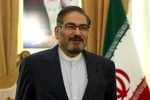
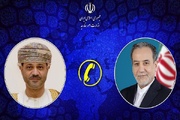

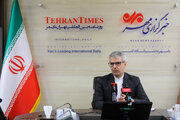




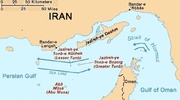



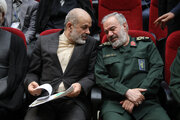



Your Comment